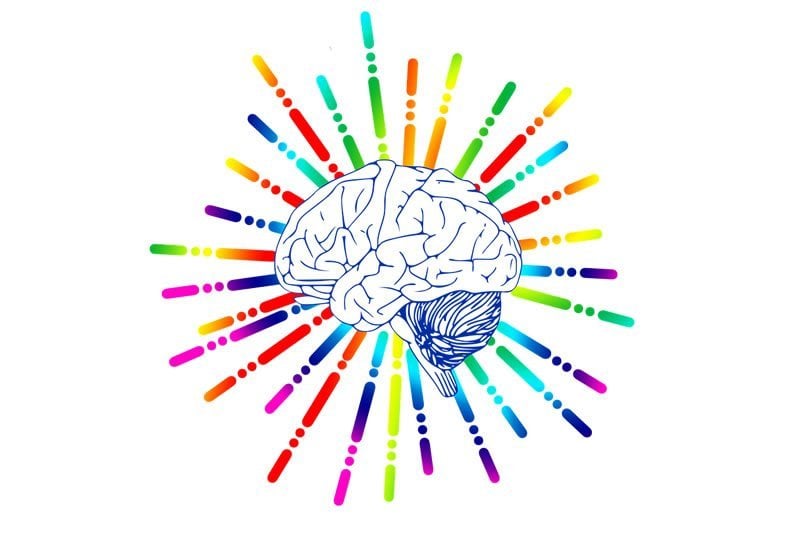Summary: Using a modified story memory technique, people with multiple sclerosis showed improvements in learning and memory. Additionally, fMRI neuroimaging revealed changes in brain activity related to working memory and word encoding.
Source: Kessler Foundation
Neuroimaging study identifies specific brain regions associated with memory rehabilitation using the modified Story Memory Technique, according to researchers at Kessler Foundation.
The study furthers understanding of the findings of prior MEMREHAB studies using the modified Story Memory Technique for memory rehabilitation in the population with multiple sclerosis (MS). Prior studies at Kessler Foundation showed improvement in learning and memory in response to treatment with mSMT in individuals with MS, and associated changes in brain activity on functional magnetic resonance imaging (fMRI) related to working memory and word encoding. Findings suggested that the treatment resulted in effects on cerebral activation and functional connectivity.
In this study, brain activation was examined in a subset of 16 participants with MS from the MEMREHAB trial. The participants were randomized to treatment (n=6) or placebo control (n=10) groups, and tested for their ability to remember a paragraph, before and after treatment with mSMT. It was hypothesized that mSMT treatment may produce different brain activation patterns during paragraph encoding in the treatment group compared to the control group.
Participants in the treatment c=group exhibited decreased brain activity in the language network (LAN), default mode network (DMN), and executive control network (ECN). This pattern of reduced activation was associated with marginally significant improvement on the Rivermead Behavioral Memory Test with a large effect size noted between baseline and follow-up performance for the treatment group.
“The decreased brain activation seen in this study may be a sign of more efficient processing after treatment,” said Dr. Boukrina, research scientist in the Center for Stroke Rehabilitation Research at Kessler Foundation. “At baseline, individuals with MS often show hyperactivation of cortical areas during cognitive tasks,” she explained, “which may be a necessary compensation in order to complete the task like their counterparts without MS. After treatment, the task becomes less demanding for them, and this lower demand may account for the reduction in activation.”

This study has important implications for cognitive research in MS. Identifying the regions of the brain associated with improvements in learning and memory may foster investigation into methods that may augment the beneficial activation patterns, such as pharmacological agents or transcranial magnetic stimulation. Combining therapies may be a means of achieving optimal behavioral response in individuals with MS affected by cognitive deficits.
Source:
Kessler Foundation
Media Contacts:
Carolann Murphy – Kessler Foundation
Image Source:
The image is in the public domain.
Original Research: Closed access
“Brain activation patterns associated with paragraph learning in persons with multiple sclerosis: The MEMREHAB trial”. Olga Boukrina, PhD, Ekaterina Dobryakova, PhD, Veronica Schneider, BA, John DeLuca, PhD, and Nancy Chiaravalloti, PhD.
International Journal of Psychophysiology doi:10.1016/j.ijpsycho.2019.09.008.
Abstract
Brain activation patterns associated with paragraph learning in persons with multiple sclerosis: The MEMREHAB trial
The modified Story Memory Technique (mSMT) is a memory rehabilitation program that combines training in visualization and context formation to improve learning and memory. Previous studies have shown improvement in learning and memory in individuals with multiple sclerosis (MS) after undergoing the mSMT, including changes in brain activity related to working memory and word encoding. The current study examined changes in brain activity in 16 individuals diagnosed with MS (n treatment = 6; n placebo control = 10) when they were presented with to-be-remembered information within a meaningful context (i.e. a paragraph) from before to after mSMT treatment. We expected treatment-related changes in brain activation in the language network (LAN), default mode network (DMN), and executive control network (ECN). Consistent with this prediction, fMRI results revealed reduced brain activation in the LAN, DMN and ECN after completing the mSMT treatment in the context of paragraph learning. While no significant behavioral changes were observed, a marginally significant improvement with a large effect size was noted between baseline and follow-up performance on the Rivermead Behavioral Memory Test in persons who completed treatment. Results are discussed in terms of the impact of imagery training on patterns of cerebral activation when learning words presented within a context.






